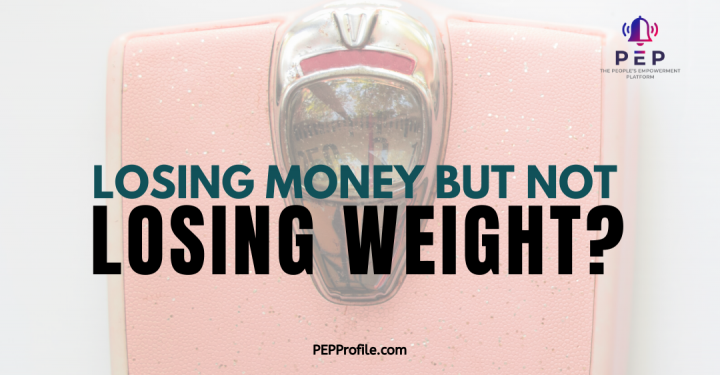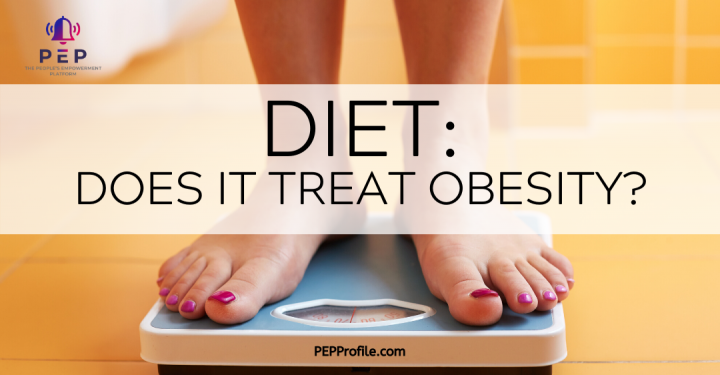Member Sign In
Login with email and password
No account yet? Register Now
Your Diet Is Not Going to Work If…
Your diet is not going to work if you can’t separate the science fact from marketing fiction. To do that, you’d have to spend weeks reading dozens of medical studies. Which, to be honest, is even less fun than it sounds. Lucky for you, I've already done the research so all you have to do is read on. These few minutes will change your life. If you let them.

The American weight loss industry is a 79 billion dollar a year giant. According to Business Wire, globally that number will hit 350 billion by 2025. Pills, plans, shakes, gyms, fads, coaches, and weird infomercials – all of it promises results if you just hand over your money.
But how can you tell what works? Today I’m going to walk you through the scientific consensus on why diets fail and what you can do to actually make them work. You’re going to learn psychology and the science that can unlock the real you. Let’s get started.
First, who’s spending all this money? In terms of age, Americans between 18 and 34 are most likely to follow a diet. According to the National Health and Nutrition Examination Survey, between 2013 and 2016, almost half of U.S. adults tried to lose weight. That breaks down to 56.4 percent of women and 41.7 percent of men. Digging deeper, according to a CDC breakdown,
“a recent national study found 21% of women and 10% of men had used weight-loss supplements at some point in their lives, with women ages 18 to 34 having the highest rate of past year use at 17 percent.”
It’s not just gender that predicts weight loss behavior. Income plays a big role too. Doctors found that people earning less than 30,000 dollars a year spend two to four times as much of their income on weight loss supplements as people earning 100,000 and up. Most worryingly, the National Health and Nutrition Examination Survey found that adults in low-to-middle income households were more likely to use weight-loss strategies inconsistent with medical recommendations.
Finally, race also seems to play a role in whether you chase diet trends. Though white and Hispanic adults both tried to diet at similar rates, African American adults were slightly less likely to diet and Asian adults were a whopping 8 percent less likely to try dieting.

Leading the world in both wealth and fast-food restaurants, it’s no surprise that North America also leads the world in weight loss spending. We led the pack in 2018 with a severe obesity rate around 6%, affecting 20 million people and an obesity rate of roughly 36% affecting over 118 million people.
It seems like our idea of a balanced diet is a cheeseburger in each hand. The rest of the world is catching up though. Europe takes second place in weight-loss spending, with Asia and Latin America coming next and being the fastest growing markets. The Middle East and Africa round out the bottom of the list.
So one thing is clear: a lot of people are trying to lose weight. But why? What compels so many people to want to change their bodies? According to the 13th annual Food and Health Survey, the main reason people diet is to improve their health. Specially, 20 percent of people claimed heart health as their top diet goal. Weight loss was number 2 at 18 percent and increased energy came in at 13 percent.
With all these people who want to be healthier spending more than 70 billion dollars a year to lose weight, it’s got to be working right? I think we both know this discussion wouldn’t be necessary if that were true.
100% of people who go on a diet, fail.
Ok, I’m exaggerating, but not by much. The only people who succeed at keeping weight off are those who make permanent changes. I'll discuss how in a minute, but first, let’s take a closer look at why diets fail.
UCLA Phycology Professor Traci Mann explains that “you can initially lose 5 to 10 percent of your weight on any number of diets, but then the weight comes back.” In a meta-analysis of 31 long term studies, Dr. Mann found that people often rebounded to a higher weight than they started with before dieting. She concludes that “diets do not lead to sustained weight loss or health benefits for the majority of people.”
That sounds bad, but the reality is even worse. Dr. Mann and her team decided to analyze every study that followed people on diets for two to five years. She found that most people would have been better off not going on the diet at all. Their weight would be pretty much the same, and their bodies wouldn’t suffer the wear and tear from losing weight and gaining it all back.

“Diets are not effective in treating obesity. The benefits of dieting are too small and the potential harm is too large for dieting to be recommended as a safe, effective treatment for obesity.” says Dr. Mann. At least one-third to two-thirds of people on diets regain more weight than they lost within four or five years.
So, we know that the best medical and scientific evidence says diets don’t work. But why do they fail?
According to Dr. and Dietician Robyn A. Osborn, diets fail because they’re short term efforts rather than permanent lifestyle changes. Once the diet is over and you stop thinking about living a healthier life, your biology takes over again. Gaining a significant amount of weight changes our biology.
Our bodies act as if that higher weight is our normal weight, and adjust our metabolisms to maintain it. A study of contestants on the TV show The Biggest Loser found that before the competition, they had an average resting metabolism of 2,600 calories per day. After the show, it was 2,000 calories. Six years later, even though most had returned to their pre-show weight, their resting metabolism had dropped to 1,900 calories per day.
Unfortunately, biology isn’t the only barrier to permanent weight loss. Science also shows that unless we address the underlying psychological causes of weight gain, losing the weight will only ever be a temporary fix.
According to researchers at the University of Pennsylvania, psychological and behavioral issues play significant roles in the development of obesity. Specifically, they found that substantial weight loss is related to a patient’s ability to make permanent changes in lifestyle. This requires not only better nutritional choices and exercise, but also improved management of stress and emotional states. Failure to address these root causes doom most attempts at long-term weight loss.
The people selling you fad diets and 7-week plans know all the science. They know that after they take your money, you’ll be back to your original weight or higher. They count on it. If you ever got permanently healthy, you wouldn’t need their next book, pill, or program.
Marketers keep you in a cycle of regaining weight and buying their temporary fixes by preying on your fear of the unknown. This fear is one of the most fundamental and deeply rooted fears in the human psyche. Dr. Nicholas Carleton’s research in the Journal of Anxiety Disorders demonstrates this perfectly. He looked at dozens of studies across the fields of psychology, biology, and neurobiology.
Dr. Carleton concludes that fear of the unknown is a deeper and more primal fear than even the fear of death.
This surprising fact is backed up by many studies, but the most interesting one is specifically about weight loss. In this case, 75 percent of people said that they would take a pill that would guarantee they would maintain their desired weight even if it would lower their life expectancy. On average, they were willing to give up 5.7 years.
Crazier still, 91 percent said that they would not take a pill that would lengthen their life by five years if it guaranteed that they would also remain overweight. Though people say they want to be healthy and live longer, the data proves they’d rather be certain.

Marketers know this so they sell you the illusion of certainty. They promise you a certain cure, knowing it won’t work long term. They’ll keep you in a vicious and unhealthy cycle that you won’t escape until you know it’s there.
So what did we learn today that we can use to be our better selves? Diets don’t work. They ignore the biological and psychological realities that caused us to gain that weight in the first place. If you want to lose weight and keep it off, the two keys are:
1. Making permanent lifestyle changes including healthier food choices and regular exercise and
2. Addressing the root causes of your weight gain.
Everyone is different. Some people use food to deal with stress, others with depression. Some people have desk jobs and don’t get enough exercise. Some of us have hectic schedules and don’t make time for healthy choices.
Whatever caused you to gain weight, there’s no silver bullet when it comes to weight loss. Anyone promising you a fast, easy solution is taking advantage of you to steal your money. Don’t fall for it. The real solution is actually free, it just takes time. You have to make healthy living a habit, not a choice.
Check out my blog on the Science of Habit Formation to get started so you can stop getting haircuts before doctor visits because you’re scared of the scale.
What small change will you make today to start your journey towards a permanently healthier life? Tell me in the comments below and help inspire others to begin their journeys.
Thank you for being a part of PEP Profile Community. If you’re not yet a member but would like to join the discussion you can request an invite at PEPPROFILE.COM
Start today and you’ll be one day closer to your goals.
REFERENCES:
https://www.ncbi.nlm.nih.gov/pmc/articles/PMC5377432/
https://www.businesswire.com/news/home/20190225005455/en/72-Billion-Weight-Loss-Diet-Control-Market
https://healthblog.uofmhealth.org/health-management/weighing-facts-tough-truth-about-weight-loss
https://www.cdc.gov/nchs/products/databriefs/db313.htm
https://www.businesswire.com/news/home/20190225005455/en/72-Billion-Weight-Loss-Diet-Control-Market
https://www.cdc.gov/nchs/products/databriefs/db313.htm
https://www.webmd.com/diet/features/why-do-we-keep-falling-for-fad-diets#1
https://www.sciencedirect.com/science/article/pii/S0887618516300469
http://newsroom.ucla.edu/releases/Dieting-Does-Not-Work-UCLA-Researchers-7832
https://www.latimes.com/opinion/la-xpm-2013-jan-04-la-oe-saguy-weight-loss-20130104-story.html
https://www.eatthis.com/reason-people-go-diet/
https://juniperpublishers.com/crdoj/pdf/CRDOJ.MS.ID.555612.pdf
Login with a social network